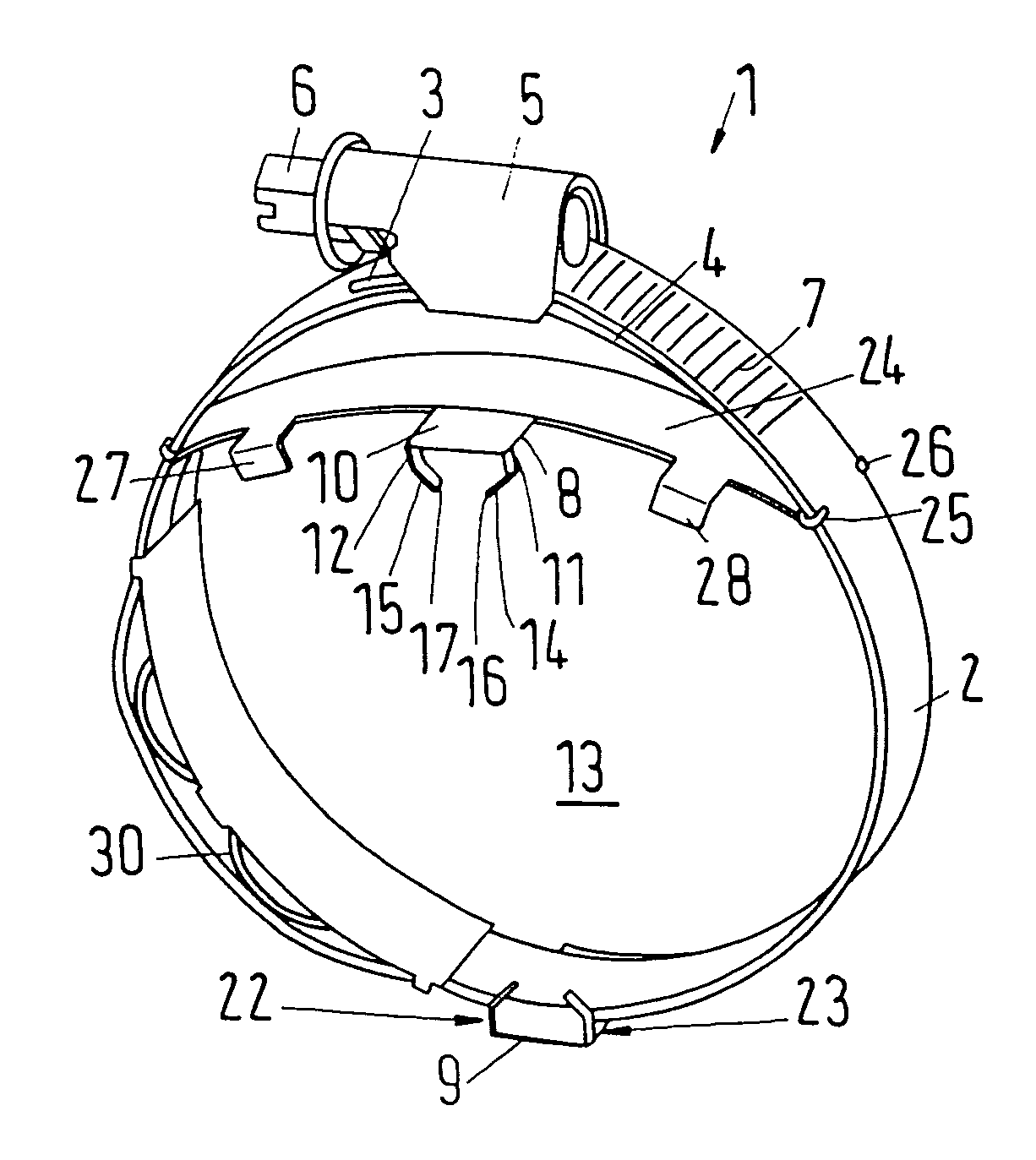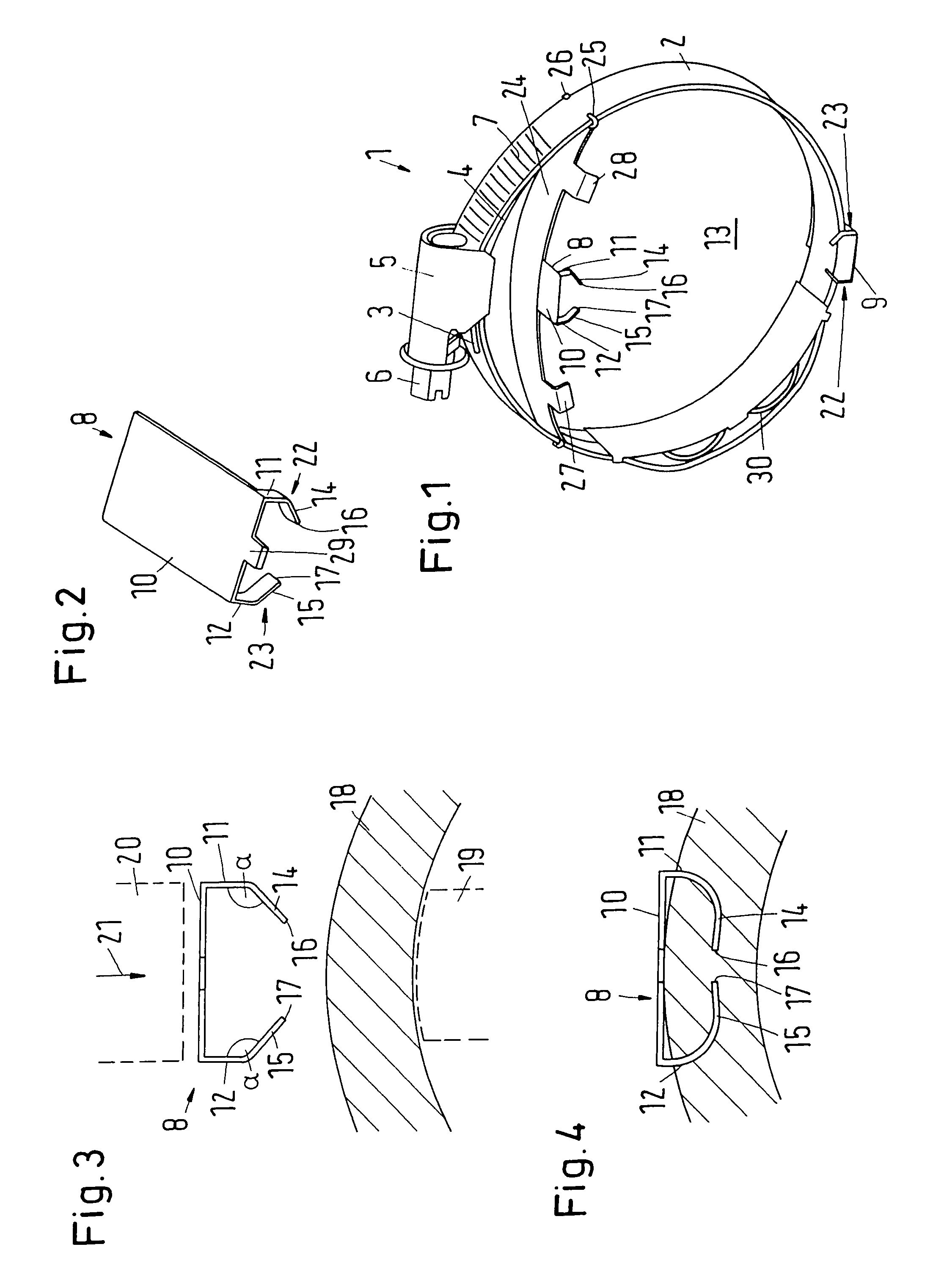Hose clamp
a technology of hose clamps and hoses, applied in the direction of hose connections, snap fasteners, buckles, etc., to achieve the effect of simplifying the pre-assemble of the hose clamp
- Summary
- Abstract
- Description
- Claims
- Application Information
AI Technical Summary
Benefits of technology
Problems solved by technology
Method used
Image
Examples
Embodiment Construction
As illustrated in the drawing, the hose clamp 1 has a clamp band 2 which is bent into a circular shape, so that an outer end 3 is located above an inner end 4. The two ends are connected by means of a clamping device 5. The clamping device 5 includes a clamping screw 6 which meshes with a threaded embossment 7. When the clamping screw is tightened, the two ends 3, 4 of the clamping band 2 are moved relative toward each other in the circumferential direction of the hose clamp 1, so that the inner diameter of the hose clamp 1 is reduced.
The purpose of this type of hose clamp 1 is to clamp a hose, not shown, onto a connection piece. The hose clamp 1 is placed on the hose. The hose is then pushed onto the connection piece and the hose clamp 1 is tensioned. It is advantageous in this connection if the clamping device 5 is placed on the hose in a different position and is held in this position, so that a person can apply a tool to the clamping screw 6.
For ensuring this positioning, the ho...
PUM
 Login to View More
Login to View More Abstract
Description
Claims
Application Information
 Login to View More
Login to View More - R&D Engineer
- R&D Manager
- IP Professional
- Industry Leading Data Capabilities
- Powerful AI technology
- Patent DNA Extraction
Browse by: Latest US Patents, China's latest patents, Technical Efficacy Thesaurus, Application Domain, Technology Topic, Popular Technical Reports.
© 2024 PatSnap. All rights reserved.Legal|Privacy policy|Modern Slavery Act Transparency Statement|Sitemap|About US| Contact US: help@patsnap.com









